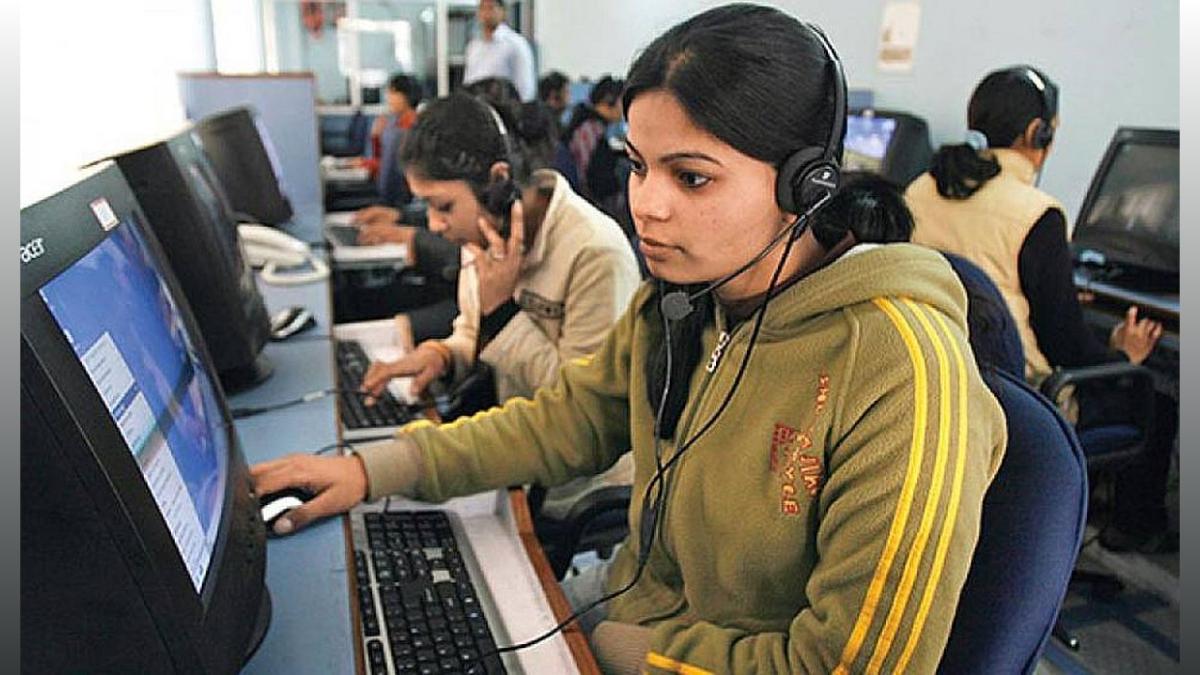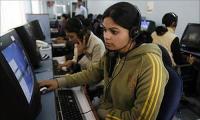India Aims for 70% Female Workforce by 2047: G20 Meeting
India has pledged to achieve 70% female workforce participation by 2047, with government initiatives like extended maternity leave and equal pay. The country highlighted its economic growth driven by women in IT, R&D, and engineering, at the G20 Employment Working Group Meeting.

New Delhi, Feb 19 (PTI) India is committed to achieving 70 per cent female workforce participation by 2047 as the government has extended maternity leave, creche facilities, and equal pay provisions for them, a top official said.
Addressing the first G20 Employment Working Group Meeting 2025 under South African Presidency, Union Labour Secretary Sumita Dawra also stated that India's increasing participation of women in high-growth sectors like IT, R&D, and engineering was noted as a critical driver of economic growth.
Dawra led the Indian delegation at the meeting being held from February 18-21 at Port Elizabeth, South Africa, an official statement said.
The delegation included Thelma John David, Consul General of India in Durban, South Africa, and Piyush Kumar Pathak, Deputy Director from Ministry of Labour & Employment.
She emphasized the success of the e-Shram portal, which has registered over 300 million unorganized workers, and the modernization of ESIC and EPFO schemes.
The Employment Linked Incentive (ELI) scheme was also highlighted as a key initiative to promote formal sector employment.
Youth empowerment through skill development was emphasized during India's intervention with a key focus on employability of graduates which has risen in the last decade from 34 per cent to 55 per cent.
India's global engagement in skills mapping with the ILO and OECD was underscored, along with bilateral agreements facilitating skilled labour mobility with major G20 countries.
The Labour Secretary reaffirmed India's commitment to fostering economic inclusion and empowering its youth, recognizing them as key drivers of national and global growth.
India's efforts in social security expansion were recognized, with coverage doubling from 24.4 per cent in 2021 to 48.8 per cent in 2024, as per ILO's World Social Protection Report 2024-26.
With the ongoing work with ILO on including in-kind' benefits and those of the states, the potential coverage of the country will go up further.
During the intervention, she highlighted India's major reforms aimed at job creation, labour market flexibility, and comprehensive social security.
India, as the world's fastest-growing major economy, continues to strengthen its economic landscape through strategic sectoral investments, including agriculture, MSMEs, manufacturing, medical education, and infrastructure development.
The focus on global supply chains and export-driven employment was underscored, with initiatives to enhance warehousing and air cargo facilities.
Dawra also emphasized India's positive employment trends, noting a decline in the unemployment rate from 6 per cent in 2017-18 to 3.2 per cent in 2023-24, alongside a significant rise in the Labour Force Participation Rate (LFPR) and Worker Population Ratio.
Labour market modernization was highlighted, particularly the four Labour Codes and other reforms aimed at improving labour welfare, expanding social securityincluding for gig and platform workersformalizing employment, and increasing female labour force participation.
Discussions were held on two priority issues -- inclusive growth & youth employment and social security & digitalisation for an inclusive future of work.
The G20 Employment Working Group meeting saw interventions from G20 member countries, emphasizing their respective policy approaches to employment, social security, and skills development.
Invited member states, including the UAE, the Netherlands and Norway also made interventions on priority areas.
International Labour Organisation (ILO) and Organisation for Economic Cooperation & Development (OECD) also made a presentation on global employment trends and best practices in labour market reforms.
Addressing the first G20 Employment Working Group Meeting 2025 under South African Presidency, Union Labour Secretary Sumita Dawra also stated that India's increasing participation of women in high-growth sectors like IT, R&D, and engineering was noted as a critical driver of economic growth.
Dawra led the Indian delegation at the meeting being held from February 18-21 at Port Elizabeth, South Africa, an official statement said.
The delegation included Thelma John David, Consul General of India in Durban, South Africa, and Piyush Kumar Pathak, Deputy Director from Ministry of Labour & Employment.
She emphasized the success of the e-Shram portal, which has registered over 300 million unorganized workers, and the modernization of ESIC and EPFO schemes.
The Employment Linked Incentive (ELI) scheme was also highlighted as a key initiative to promote formal sector employment.
Youth empowerment through skill development was emphasized during India's intervention with a key focus on employability of graduates which has risen in the last decade from 34 per cent to 55 per cent.
India's global engagement in skills mapping with the ILO and OECD was underscored, along with bilateral agreements facilitating skilled labour mobility with major G20 countries.
The Labour Secretary reaffirmed India's commitment to fostering economic inclusion and empowering its youth, recognizing them as key drivers of national and global growth.
India's efforts in social security expansion were recognized, with coverage doubling from 24.4 per cent in 2021 to 48.8 per cent in 2024, as per ILO's World Social Protection Report 2024-26.
With the ongoing work with ILO on including in-kind' benefits and those of the states, the potential coverage of the country will go up further.
During the intervention, she highlighted India's major reforms aimed at job creation, labour market flexibility, and comprehensive social security.
India, as the world's fastest-growing major economy, continues to strengthen its economic landscape through strategic sectoral investments, including agriculture, MSMEs, manufacturing, medical education, and infrastructure development.
The focus on global supply chains and export-driven employment was underscored, with initiatives to enhance warehousing and air cargo facilities.
Dawra also emphasized India's positive employment trends, noting a decline in the unemployment rate from 6 per cent in 2017-18 to 3.2 per cent in 2023-24, alongside a significant rise in the Labour Force Participation Rate (LFPR) and Worker Population Ratio.
Labour market modernization was highlighted, particularly the four Labour Codes and other reforms aimed at improving labour welfare, expanding social securityincluding for gig and platform workersformalizing employment, and increasing female labour force participation.
Discussions were held on two priority issues -- inclusive growth & youth employment and social security & digitalisation for an inclusive future of work.
The G20 Employment Working Group meeting saw interventions from G20 member countries, emphasizing their respective policy approaches to employment, social security, and skills development.
Invited member states, including the UAE, the Netherlands and Norway also made interventions on priority areas.
International Labour Organisation (ILO) and Organisation for Economic Cooperation & Development (OECD) also made a presentation on global employment trends and best practices in labour market reforms.







 © 2025 Rediff.com India Limited. All rights reserved.
© 2025 Rediff.com India Limited. All rights reserved.